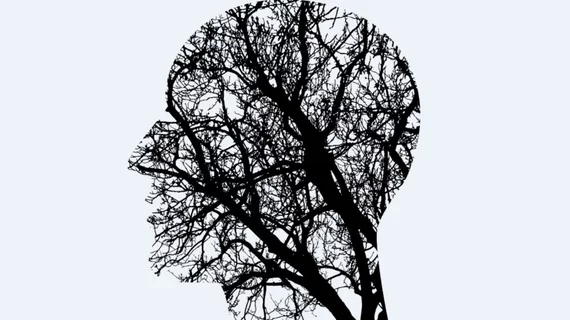TBI linked to increased risk of suicide
Those with traumatic brain injury (TBI) experienced an increased risk of suicide, according to a Danish study of more than 34,000 individuals.
Researchers retrospectively analyzed nationwide data of more than seven million people living in Denmark between 1980 and 2014. Of the 34,529 recorded suicides, 10.2 percent had medical contact for either mild TBI (concussion), skull fracture without TBI or severe TBI (head injuries with evidence of structural brain injury), found Trine Madsen, PhD, with the Danish Research Institute of Suicide Prevention in Copenhagen, and colleagues.
“Traumatic brain injury is a major public health problem that has many serious consequences, including suicide,” authors wrote in the August 15 JAMA study. “The high prevalence of TBI globally emphasizes the importance for preventing TBI in order to ameliorate its sequelae, such as increased suicide risk, which can be prevented resulting in saved lives.”
Compared to the general population, those with any medical contact for TBI had an increased risk of suicide. That risk grew in those with severe TBI, numerous medical contacts and longer hospital stays, authors reported.
Those individuals were also at highest risk of suicide during the six months following discharge.
Madsen and colleagues suggested post-TBI psychiatric symptoms as a potential factor in the link between TBI and suicide because those with a psychiatric diagnosis or who committed deliberate self-harm after TBI were higher than those with the brain injury alone.
Authors of a related editorial praised the work of Madsen and colleagues, and pointed out their results confirm a similar 2016 Swedish study which found a 3-fold increase in suicide risk in patients with TBI compared to controls without it.
Unlike prior studies, however, Madsen et al. included adjustments for relevant covariates, wrote Lee Goldstein, MD and Ramon Diaz-Arrastia, MD, PhD, each with Boston University School of Medicine, including preexisting psychiatric illness and preexisting nonfatal self-harm.
“Suicide is preventable, but only with recognition of risk and prompt intervention,” they concluded. “The informative study by Madsen and colleague contributes new evidence about an important public health problem that requires increased attention. Their work also provides novel information to assist clinicians caring for patients affected by TBI and its aftermath.”

